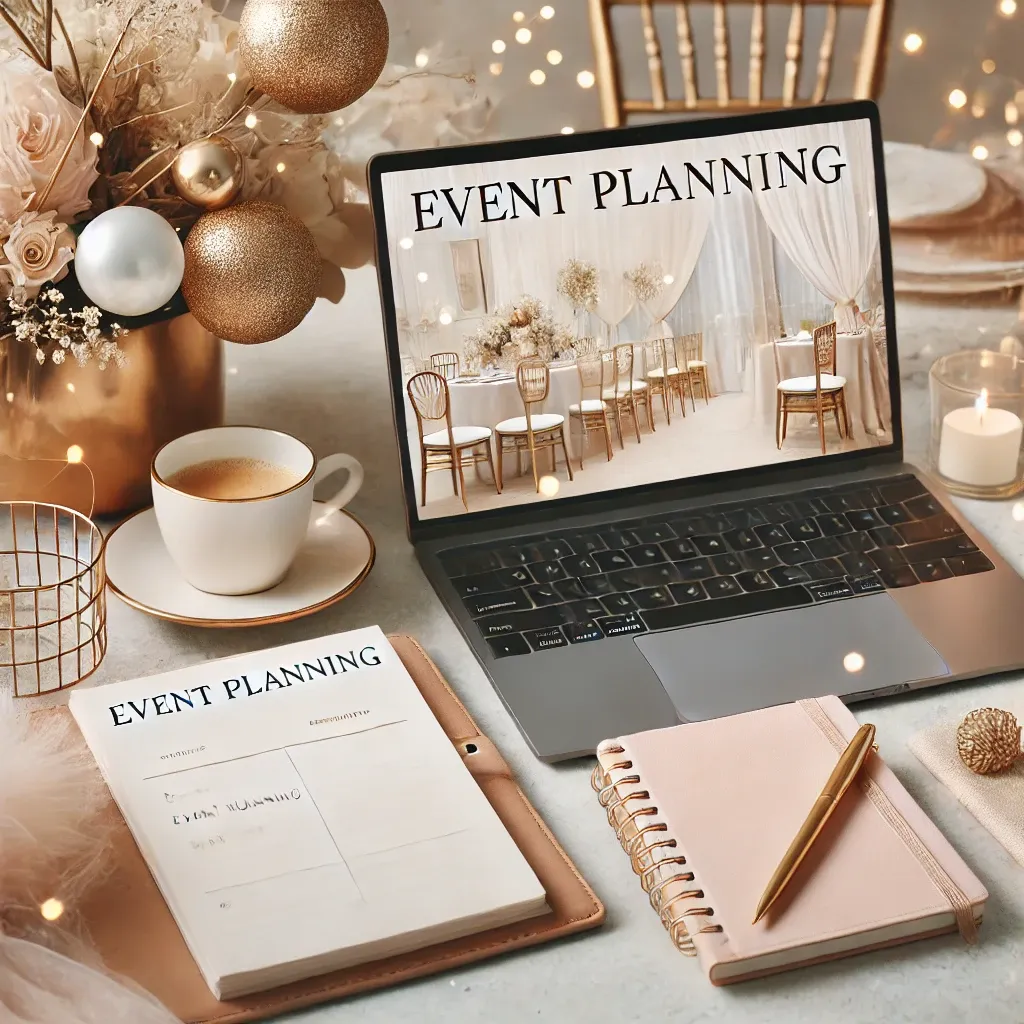Blog

How to plan a successful corporate event in 30 days | Tips and tricks
Plan your event in 30 days
Organizing a corporate event in just 30 days may seem like an impossible mission, but with the right planning, you can successfully pull it off. In this article, we guide you step by step to organizing a stress-free, memorable event, making the most of the time available. From defining objectives to managing vendors and attendees, discover how the experts achieve impactful events in tight deadlines.
Day 1-7: Define objectives and prepare the foundation
Establish the purpose and objectives of the event
The first thing is to be clear about the purpose of the event. What do you want to achieve? It could be to strengthen the company culture, launch a product or improve customer relations. Setting clear goals will allow you to make faster decisions throughout the process.
Define key performance indicators (KPIs) that help you measure the success of the event. These can include the number of attendees, participant satisfaction or impact on sales.
Define the budget
Determining the budget from the start is essential to avoid financial surprises. Consider the costs of the venue, catering, technology, entertainment and marketing. Make sure to set aside an extra 10-15% for unforeseen events.
Breaking the budget into categories will help you better allocate resources and ensure that each area is well covered without going overboard.
Selecting the team and assigning responsibilities
Assembling a trusted team is crucial when you are short on time. Assign clear roles from the start, such as a logistics coordinator, a supplier manager and a marketing manager.
Hold short but effective meetings to review progress and ensure that everyone is aligned on the goals.
Day 8-14: Choose a venue, hire vendors, and set a schedule
Choosing the right venue
Choose a venue based on the size of the event, location of attendees, and budget. Check availability as soon as possible and make sure the space has adequate technology (microphones, screens, etc.) for the event, based on needs.
Remember to consider factors like accessibility, capacity, and potential venue restrictions. Don't forget to ask about quick set-up/take-down options.
Hiring essential vendors
Reach out to key vendors during this second week. This includes catering, AV equipment, security, and decor. Be sure to check their references and previous experience with corporate events.
Negotiate contracts that include cancellation clauses, and make sure each vendor is clear about their timelines and responsibilities.
Create an event schedule
Develop a detailed schedule that includes all event activities, from guest arrival to networking and farewell moments. Including times for setup and technical testing is key to avoiding delays on the day of the event.
Day 15-21: Focus on Promotion and Final Logistics
Designing the Marketing and Promotion Campaign
Good promotion is essential to ensure attendance. Create an effective marketing strategy focused on your target audience. Use social media, email marketing, and direct marketing to capture attention.
Highlight the benefits of the event, such as the networking opportunity or the chance to learn about company news. Send periodic reminders to registrants to keep them engaged.
Confirm Logistics and Coordinate Details
Review contracts with vendors and confirm everything is in order. Coordinate with the venue and verify that necessary equipment and services are ready.
Make sure the entire organizing team is informed about their tasks on the day of the event. A checklist of the logistical elements will be helpful so you don't forget anything important.
Create a Memorable Experience
It's not just about meeting the basics. Personalize the event so attendees remember the experience. This can include small details like welcome kits, live music, or interactive stations for attendees.
A memorable event strengthens your company's image and leaves a positive impression on attendees.
Day 22-28: Attendee Management and Technical Testing
Managing Registration and Confirming Attendance
Implement an efficient registration system, either through an online platform or a well-organized guest list. Send confirmations and reminders to attendees to avoid last-minute cancellations. If you have VIP attendees, make sure to manage their experience in special ways, such as assigning them a prominent spot or providing transportation.
Technical Testing and Dress Rehearsals
Do a full technical test of all equipment the day before the event, from microphones to visual presentations. Rehearse with speakers to ensure all content is prepared and coordinated.
A dress rehearsal will allow you to identify potential technical or coordination glitches before the actual event.
Prepare a Plan B
Having a Plan B is crucial to avoid surprises. What happens if a vendor fails or there are technical issues? Be prepared for last-minute changes and make sure your team knows how to act in an emergency.
Having alternative vendors and an additional technical toolkit can be the difference between a minor hiccup and a disaster.
Day 29-30: Event Execution and Final Evaluation
Execute the Event
The day of the event is where all your efforts come to life. Make sure the team is in place and that each vendor is delivering on what was agreed.
Manage the flow of the event, anticipating attendees' needs and resolving any issues quickly. Keep a positive and controlled attitude, as the entire team and attendees will follow your energy.
Collect Feedback and Evaluate Results
At the end of the event, collect feedback from attendees through surveys or quick interviews. It's also important to evaluate with your team the KPIs defined at the beginning to measure the success of the event.
Note down lessons learned to improve future events and ensure a follow-up with attendees to maintain the relationship.

Extra Tips from the Experts
Stay calm under pressure
Stress is inevitable when organizing an event, but staying calm is essential. Take a moment to breathe and delegate tasks when necessary. Remember that your team is there to support you.
Be flexible and adapt
Even with the best planning, unforeseen events can arise. Be flexible and agile in your decision-making, and remember that adapting quickly can save the event from any complications.
As you can see, organizing a successful corporate event in 30 days is possible if you follow a structured plan and maintain fluid communication with your team and suppliers. From defining clear objectives to managing the logistical and technical details, each step is key to the success of the event. Do you need help planning your next event? Contact us at The Green Vintage to learn more and make your event a guaranteed success!






